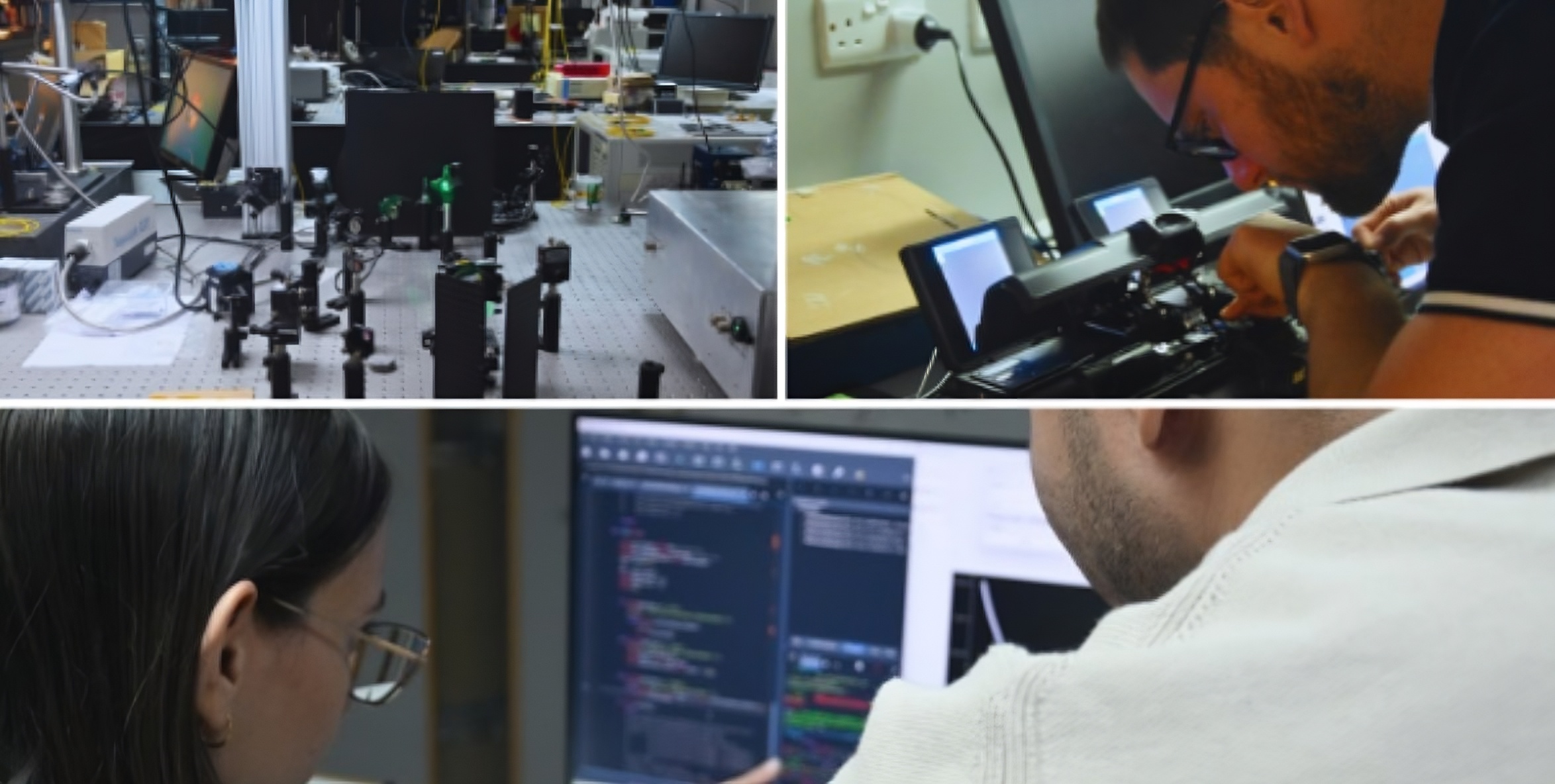Cyprus has deployed its first quantum communication network, led by scientists from the Cyprus University of Technology (CUT) as part of the Cyprus Quantum Communication Infrastructure (CYQCI) project.
According to an official announcement, the initiative was spearheaded by Kyriacos Kalli and co-funded by the European Commission and the Deputy Ministry of Research, Innovation and Digital Policy (DMRID) of Cyprus.
With the technical implementation led by Mariella Minder, the first national network of its kind “established quantum key distribution (QKD) links between seven critical governmental end users, providing them with infrastructure for communication of unprecedented security.”
The network’s successful operation was showcased during the Cyprus Quantum Security Info Day, held on June 5, at the premises of the Digital Security Authority (DSA). During a live demonstration, “a video call with quantum-enhanced security was established between the DSA and the DMRID, utilising a direct QKD link between the two buildings.”
As noted, this “real-time, tamper-proof communication highlighted the network’s readiness to secure sensitive governmental data against present and future threats.”
Speaking at the event, Konstantinos Katzis, core member of the CYQCI team, said the project plans “to acquire an optical ground station, aiming to scale the network with satellite-based links that will connect the island to the rest of the European Union.”
Also in attendance were representatives from CUT, DSA, the Cyprus Organisation for Standardisation, as well as key international stakeholders in the quantum sector, including Quantum Telecommunications Italy, Adtran and Officina Stellare, who presented the current technological landscape.
The future roadmap of the CYQCI project has already been outlined. The next phase will focus on “establishing a secure and scalable quantum communication infrastructure that interconnects National Quantum Communication Infrastructures (NatQCIs).”
As part of this effort, “Cyprus will be linked with Greece, Bulgaria, and the Netherlands.” The initiative is “closely aligned with the objectives of the European Quantum Communication Infrastructure (EuroQCI),” which aims to “integrate both terrestrial and space-based quantum communication systems to enable secure Quantum Key Distribution (QKD) across Europe.”
The timing of the deployment comes as cybersecurity threats continue to escalate. The announcement noted that “cyberattacks on sensitive data have been surging at an alarming rate,” while the rise of quantum computing is compounding the threat landscape.
Research cited in the announcement warned that “quantum machines could decrypt today’s strongest public key encryption in seconds, some estimates suggest this could happen by 2030.”
QKD, by contrast, is seen as a solution to both current and future risks. It “generates cryptographic keys that are intrinsically tamper evident, any eavesdropping attempt disturbs the quantum states and is instantly detected.”
For that reason, the technology “provides the only unbreakable encryption mechanism, safeguarding communications both against current cyber threats and the looming power of quantum computers.”
As stated, the launch of the quantum network marks a step forward for Cyprus in securing public-sector communication.
By integrating QKD into real-world operations, the CYQCI project has “laid the foundation for a secure, scalable, and future-ready communications infrastructure.”
It was also noted that this development reflects “a meaningful contribution to the broader European Quantum Communication Infrastructure.”






Click here to change your cookie preferences